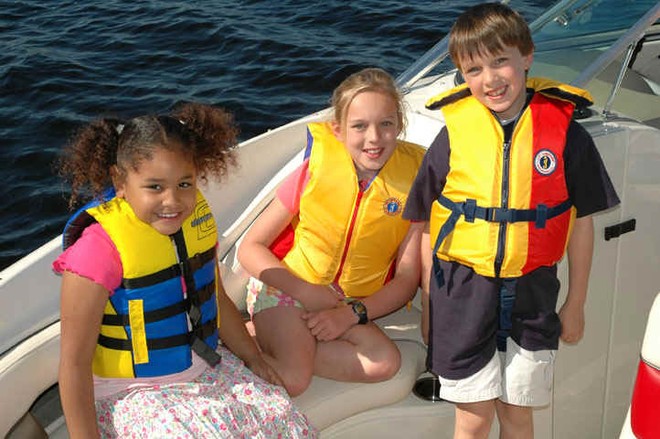Boaters ignore simple safety precautions
by Petty Officer 3rd Class Tara Molle/Sail-World on 1 Jun 2011

Safe boating practices - remember you may be saving the life of someone you love SW
Feel for the frustration of the various rescue services around the world as their pleading for common precautions seems to go unheeded. It almost seems as though boating enthusiasts are on a suicide mission, so many of them ignore all safety warnings.
In the USA National Safe Boating Week has just passed (May23-30) with much publicity in all forms of media about fundamental safety precautions. Yet on the west coast of Florida alone, there were 23 search and rescue missions during that week.
So here are the seven simple but crucial life saving practices that coast guards recommend:
1. Always Wear a Lifejacket – Almost three-quarters of all fatal boating accident victims drowned, and of those, 84 percent were not reported as wearing a life jacket.
2. Invest in an EPIRB – An Emergency Position-Indicating Radio Beacon or a Personal Locator Beacon can help take the search out of search and rescue.
3. Invest in a VHF Radio – Too many boaters are relying on cell phones. Sailors are reminded that cell phones only work so far offshore. A VHF radio can serve as a dependable means of communication during an emergency at sea.
4. Don’t Drink and Sail – Alcohol use is the leading contributing factor in fatal boating accidents.
5. Take a Boating Safety Course – Approximately 76 percent of all fatal accidents occurred on a vessel with an operator who had no formal boating safety instruction.
6. Get a Vessel Safety Inspection – Even if you pay careful attention to safety, dangerous mechanical problems can crop up on the best-maintained boats. That's why the Coast Guard recommends that all recreational boaters take advantage of the free Vessel Safety Check program every year.
7. File a Float Plan – A float plan is simply letting a reliable loved one or friend know where you are going, when you are going to be back and what kind of vessel you have. That person can call the Coast Guard if you don’t return on time and save critical minutes during a search and rescue operation.
'Taking simple precautions before going out on the water can mean the difference between a fun, safe day on the water and ending up in a life or death situation,' said Capt. Sheryl Dickinson, Commander of Coast Guard Sector St. Petersburg. 'Always check the weather, wear your lifejackets, know your boating limits, file a float plan with a friend or family member and bring emergency signaling devices with you out on the water.'
Boaters should remember that they are in command and that they may save more than their life by practicing safe boating. They may save the life of someone they love.
If you want to link to this article then please use this URL: www.sail-world.com/84181